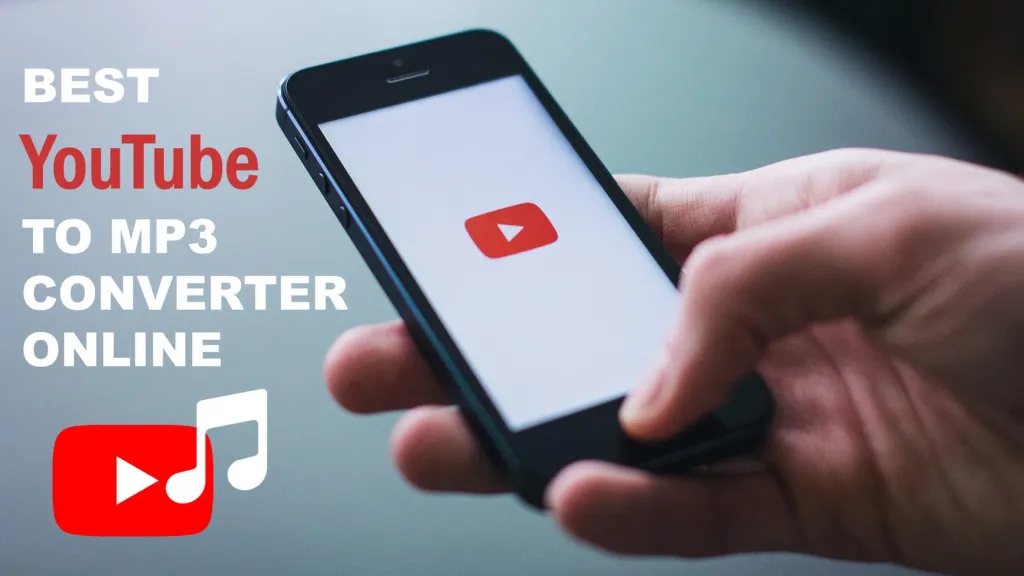YouTube MP3 converters are on the Rise:
YouTube MP3 Converters are popular due to the user-friendly interfaces, and demand for audio content that is easily accessible. The ability to convert YouTube videos to MP3 files allows users to make personalized playlists and listen to their music offline. They can also share audio content between devices. These tools are widely used because of their simplicity.
Ethics:
There are also ethical considerations when using youtube to mp3 Converters. These tools may be used by users to unintentionally promote piracy. The accessibility of these converters also raises concerns about how much value is attributed to the creators and their efforts, as well as the need for them to be compensated.
Some users use these tools to create audio backups of their favorite content or to listen offline in areas with limited internet connectivity. These tools are used by some users to make audio copies of their favorite content or listen to it offline when there is no internet connection. In the current discussion surrounding YouTube MP3 conversion, finding a compromise between convenience for users and creators’ rights is a difficult task.
The Legal Sector and the Industry:
Legal actions were taken in response to YouTube’s challenges with MP3 converters. YouTube implemented measures that detect and limit the use of converters, demonstrating its commitment to protecting the rights of creators. The music industry also launched campaigns to inform users of the importance of supporting artists and purchasing content legally.
Alternatives to the Law:
YouTube MP3 Converters are a fast way to get audio out of YouTube videos. However, other options exist that compensate artists for their hard work. Subscriber-based streaming music services such as YouTube Music, Spotify, and Apple Music allow you to access a vast library of legal music. They offer offline options for listening, curating playlists, and providing support to artists via revenue-sharing models.
Explore Solutions for Balancing Copyright and Convenience
It’s important to weigh the pros and cons of possible solutions to strike a good balance between copyright protection and user convenience. These initiatives and perspectives provide insight on how to evolve the digital environment so that it accommodates both consumers and content creators.
Education Campaigns
Users can make better decisions by launching educational campaigns that raise awareness of copyright laws and fair usage, as well as the effects of unauthorized content distribution. Information about the legal options and benefits of supporting artists can directly influence a more ethical environment in digital.
Enhance Copyright Protection:
Collaboration efforts among content platforms such as YouTube and technology developers may result in stronger measures for copyright protection. It may be necessary to refine algorithms to restrict and detect the use of YouTube MP3 converters, while still preserving rights to fair use for content that is not infringing.
Models of Monetization Focused on Creators:
Platforms may explore new models of monetization that put content creators first. It could involve improving revenue-sharing structures, exploring royalty systems based on blockchain technology, or creating avenues directly for fans to help their favorite creators.
Alternatives to Legal Alternatives:
The government, associations, and platforms of digital content could collaborate to encourage legal options for accessing content. Users may choose to consume legal content if they are made aware of the advantages of streaming subscription services.
Easy-to-Use Licensing:
The licensing process could be simplified for content creators as well as content distributors to encourage more legal access to digital media. Creators will be more likely to release their digital content through legal channels if obtaining licenses is made easier and more cost-effective.
Innovative Technological Development:
It is important to encourage the creation of innovative technologies that respect copyright and meet user needs for accessibility. It could be creating platforms or tools to allow users to access content legally and seamlessly.
Conclusion:
In the digital age, the controversy over YouTube MP3 converters highlights tensions between the convenience of users, the rights and responsibilities of content creators, as well as ethical concerns. Finding a way to balance the needs of users and creators, while respecting intellectual property rights is a difficult task as technology advances. Users must be aware of both the ethical and legal implications when using YouTube MP3 converters. They should also explore other alternatives to help create a vibrant and sustainable creative ecosystem.



